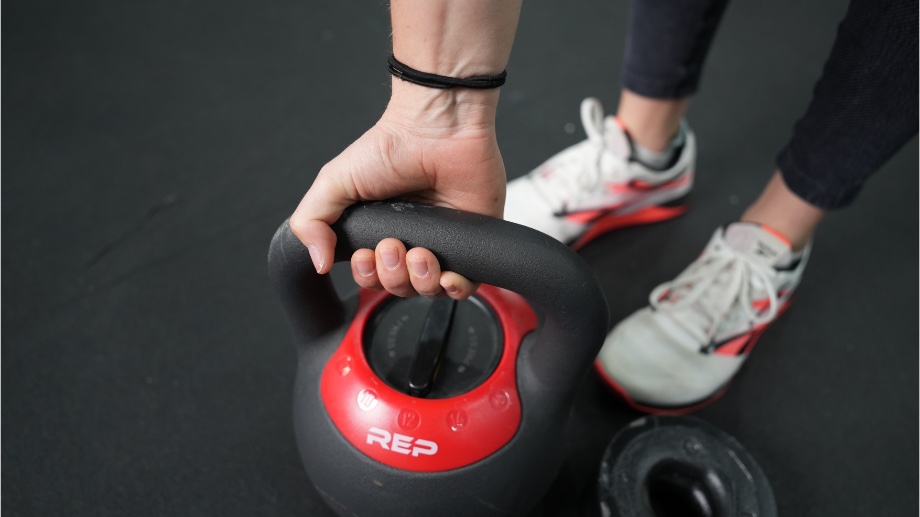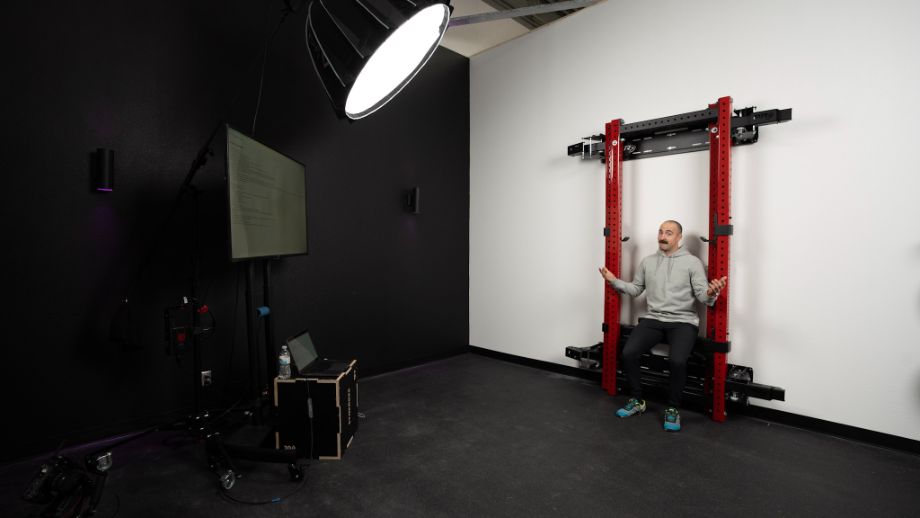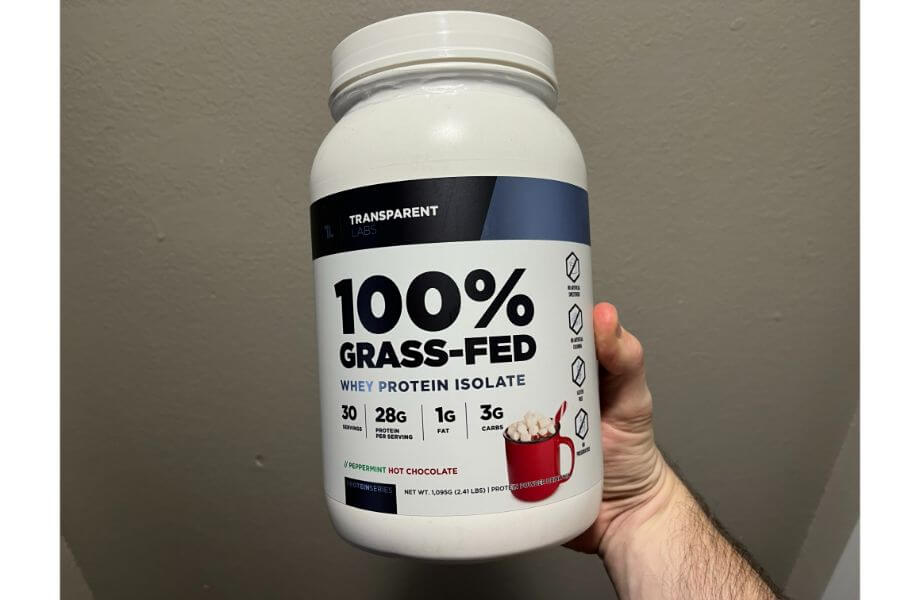Baby Boomers had “I Dream of Jeannie;” Generation X had “Mork & Mindy.” Millennials—like myself—had “Friends” and “The Office,” and I’m too old to know what Gen Z watches (maybe “Stranger Things?”).
So maybe I’m showing my age a bit, but that’s the point: Different generations have different preferences. The same goes for fitness, as the trends for gym equipment, workout apps, and social media ebb and flow.
RELATED: The GGR Staff Reveal The Best and Worst Fitness Trends of 2024
Generational differences can influence our views on fitness. To back up this point, we surveyed 2,000 Americans across the country, all over the age of 18. It was a diverse group spread out across backgrounds, genders, fitness levels, and—most important for this study—age.
In this data study, we’ll take a look at how age differences can impact our fitness preferences and perceptions about fitness. From the mode of training we prefer to where we get our fitness tips from, let’s explore our generational differences in fitness.
Key Findings
Here are some of the most significant findings we learned from our survey of different generations:
- The younger generations tend to exercise to boost their mental health; 73% of Millennials (Generation Y) and 70% of Generation Z exercise for mental health benefits. On the other hand, 92% of Baby Boomers and 90% of Gen Xers prioritize their physical health.
- Different generations get their info from different sources. According to our survey, Gen Z is 10 times more likely to use TikTok for fitness advice than Baby Boomers.
- Across all age groups, 82% of respondents picked walking as one of their top exercise choices.
- Strength training is favored by Millennials and Gen Z, with 50% and 49%, respectively, preferring this mode of training. Older generations are less compelled to train using weights, with only 41% of Gen X and 27% of Baby Boomers preferring resistance training.
- The popularity of running seems to decline with age, with 37% of Gen Zers preferring running, compared to only 18% of Gen X and 6% of Boomers choosing running as their method of cardio exercise.
RELATED: Cardio Exercises For Beginners
Most Physically Active Generations
We asked each respondent if they’d consider themselves physically active; overall, 88% of people surveyed claimed to be active and participate in physical fitness. Millennials had the highest portion of respondents to be physically active, with an impressive 90%.
Here’s a ranking of generations surveyed, from most to least active:
- Millennials (90%)
- Generation Z (88%)
- Generation X (87%)
- Baby Boomers (84%)
Why Each Generation Exercises
We all have our own reasons for exercising, but how much does our age factor into our motivations?
The top driver across all of our respondents is their physical well-being, with 89% mentioning it as a motivator for exercise. The second most common reason was for their mental health, as 68% of respondents cited it as a motivator.
The chart below demonstrates motivations and how they differ by generation:
- Millennials (73%) and Gen Z (70%) put the most emphasis on the mental health benefits of exercise. On the contrary, 92% of Baby Boomers and 90% of Generation X shared they exercised primarily for their physical health.
- Gen Zers were most motivated by muscle gain, with 44% mentioning it—a bit more of the average of 37% by the entire group surveyed.
RELATED: Benefits of Exercise For Older Adults
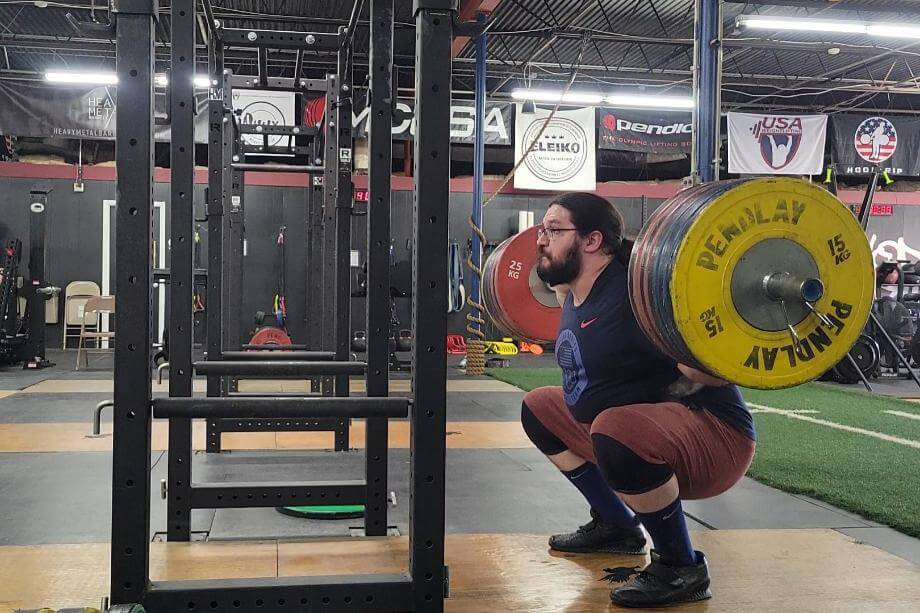
Where Does Each Generation Get Fitness Advice?
With its plethora of workout tutorials and fitness programs, YouTube is the most popular source of fitness information, being picked as a preferred method by 30% of all respondents. All generations—except Boomers—chose YouTube as their No. 1 source. Baby Boomers said they received the majority of their fitness advice from a friend or family member.
Let’s look at which sources of information were most important to each generation (and overall) with the following chart:
- Gen Zers get most of their fitness advice from Youtube and TikTok—only 14% and 11% said that they received fitness advice from non-social media online sources or friends and family, respectively.
- Gen Z also has more than double the percentage of respondents using TikTok than any other generation.
- Millennials and Gen Z prefer going to a screen for their fitness advice. They have 4 out of their top 5 sources coming from online sources (YouTube, TikTok, Instagram, and non-social media online sources).
- By contrast, Baby Boomers prefer in-person advice, with 3 of their top 5 sources being an expert or someone they know (friend or family member, a coach or instructor, or a personal trainer).
RELATED: What Is A Personal Trainer?
What Health Values Do Generations Want Most for Their Kids?
I started competitive Olympic weightlifting at the age of 12, where my dad—who’s also my coach—instilled in me the importance of strength training and staying active. Mentoring and passing down lessons learned from one generation to the next is important, so in our survey we asked participants to share the most important things they wished to ingrain in their children in terms of their health.
The most popular value parents wished to pass down to their children and the next generation was healthy nutrition habits; 37% of all people surveyed agreed with this sentiment.
- The sentiments and values remained fairly consistent from generation to generation, with the main difference coming from Baby Boomers. All generations had body positivity as their second most important value, except Baby Boomers, who preferred to instill good exercise habits to the younger generations.
- Across the cultural generations surveyed, young people from Gen Z had the greatest emphasis on the value of exercising for mental health, with 11% of respondents citing this as a value to pass down to their children.
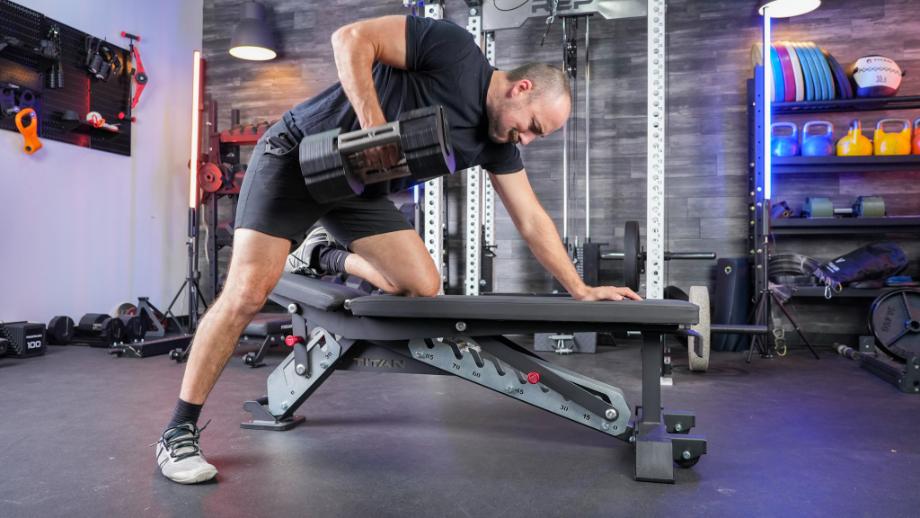
Exercise Habits By Generation
From how they work out and where they work out, regular exercise habits can vary when we break it down by generation and age. Here, let’s explore exercise habits and see how they differ from generation to generation:
Favorite Ways to Exercise
We asked people about their preferred ways to exercise, allowing them to select multiple options. Looking at all generations across the board, walking was preferred, with 82% of all respondents mentioning it.
The following table shows the top three choices of each generation, along with percentages:
- The two younger generations have the same list, while the two older generations have the same list. The only difference in ranking between all generations is that older adults, Boomers and Gen Xers, preferred cycling over running in the No. 3 spot.
- Strength training is much more prevalent for the younger generations. About half of Millennials and Gen Z choose it as a way to exercise.
- With Pilates trending on social media, Generation Z had 10% of people surveyed choose it as a favorite way to exercise. Although that’s a small percentage, it’s decently larger than the 4% of Baby Boomers interested in Pilates.
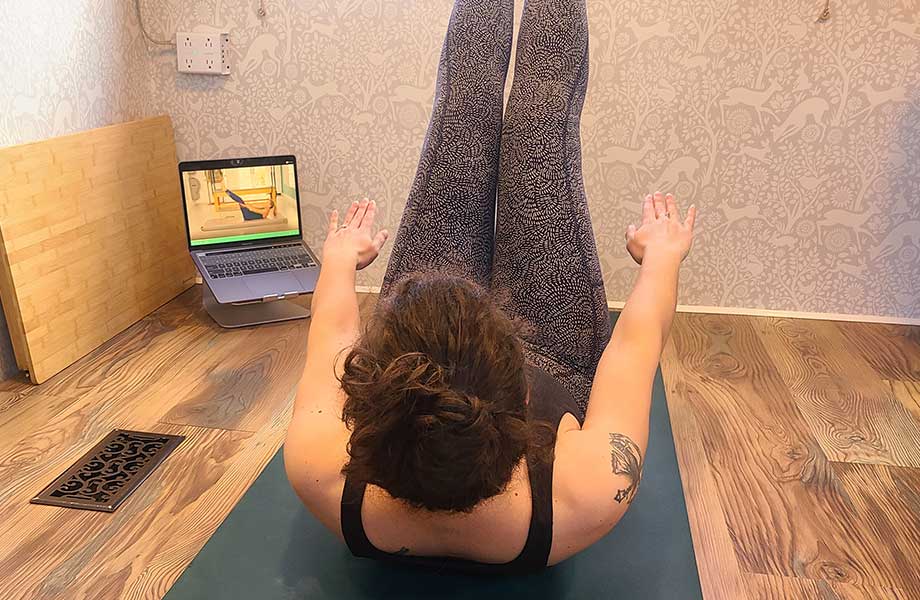
Where Does Each Generation Workout?
In the great home gym vs gym membership debate, it looks like home gyms have the edge; working out at home was the most popular choice across all generations, with 77% of all respondents choosing it as their top place to train. Of those surveyed, 43% said they preferred to train indoors at home and 34% said outside at home was their favorite place to work out.
These options were followed by 18% of people choosing a fitness facility—like a commercial gym or health club. The following graph breaks it down by generation:
- Gen Xers had the highest percentage of at-home workout enthusiasts, with 85% of them preferring to train at home.
- Generation Z had the most gym-goers, with 29% choosing a commercial gym.
Most Popular Outdoor Activities By Generation
We asked each generation for their favorite outdoor activities, and the No. 1 most popular outdoor physical activity is paddleboarding, taking 24% of all votes. Every generation—except Gen Z—had it in the top spot.
- Gen Z picked rock climbing as their top pick, with 37% citing it as their preferred outdoor activity. Baby Boomers didn’t share the sentiment, with only 2% selecting the option.
- Paddleboarding has broad appeal for all ages, with 29% of Baby Boomers and 27% of Gen Zers approving of the outdoor activity.
Favorite Piece of Workout Equipment for Each Generation
Although people vastly preferred home gyms, we didn’t know what their home gym essentials were. We asked respondents to choose as many as three of their favorite pieces of equipment in the fitness market.
From our survey, dumbbells are the overall favorite piece of equipment, earning 45% of respondents’ votes. Afterward, treadmills accounted for 40% of responses, followed by 27% choosing the elliptical.
The top three were the same—dumbbells, treadmills, and exercise bikes—across all generations except for Gen Z, who chose Olympic barbells and squat racks as their No. 3 piece of equipment. This highlights the emphasis from younger generations on strength training.
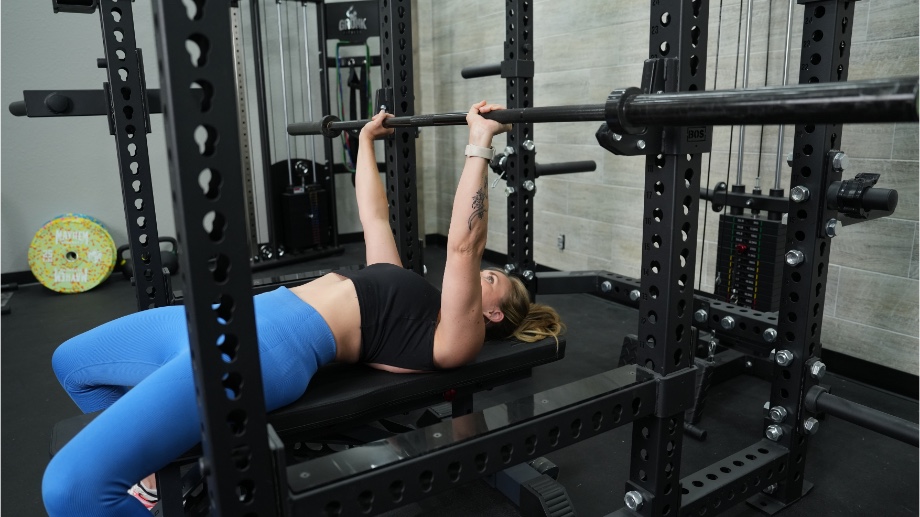
How Often Does Each Generation Workout?
The majority of those surveyed work out three or four times a week, with 45% of respondents admitting to this frequency of exercise. Baby Boomers had the highest percentage of people who worked out 5 times or more per week. Let’s take a closer look at the breakdown using the following chart:
- Many Boomers—36% of them—exercise 5 or more times a week, which is the most of any generation. This could be from having more time, since many Boomers are retired.
- The majority of all generations work out 3 or 4 times a week, but Generation Z has the highest percentage with 48% of those surveyed.
Generational Differences in Fitness: Final Thoughts
While it’s not the only thing, our life experiences can shape who we are. Certain generations can live through wars, recessions, elections, and more—which all shape our opinions.
Fitness industry trends from current and previous generations can also influence our thoughts about health and wellness as a whole. Here are a few trends we can see from those we surveyed:
- As we understand the importance of resistance training and progressive overload, younger generations lean toward a more strength-based approach to exercise.
- Likewise, current generations are emphasizing mental health and it’s link to regular exercise.
- Social media and online sources are becoming more prevalent for fitness information and advice.
Generational Differences in Fitness: FAQs
Which generation goes to the gym most?
In our survey of 2,000 Americans of different age groups, Gen Zers went gyms the most, with 29% of them saying they train at a gym. By contrast, Generation X was most likely to use a home gym, with 85% preferring that location for their workouts.
Are younger generations working out more?
We asked people in our survey if they were physically active; while the vast majority of Americans responded that they stayed active, Millennials and Gen Zers were indeed most active, with 90% and 88% of respondents saying they stayed active, respectively.
What is the most popular gym equipment across generations?
Out of the people surveyed, all age groups preferred dumbbells as their primary gym equipment. After dumbbells were treadmills, with exercise bikes being the third choice by all but Gen Z, who preferred a barbell and squat rack.
Fair Use Statement
If you have any questions about the information mentioned above, or are interested in an interview, please feel free to get in touch with Jonathan Weissberg (jonathan@email.garagegymreviews.com), the Fitness Research Director at Garage Gym Reviews. You are welcome to use any of the findings, data, and graphs from this report, but we do ask that you please provide a link back to our study to cite the original data source.



